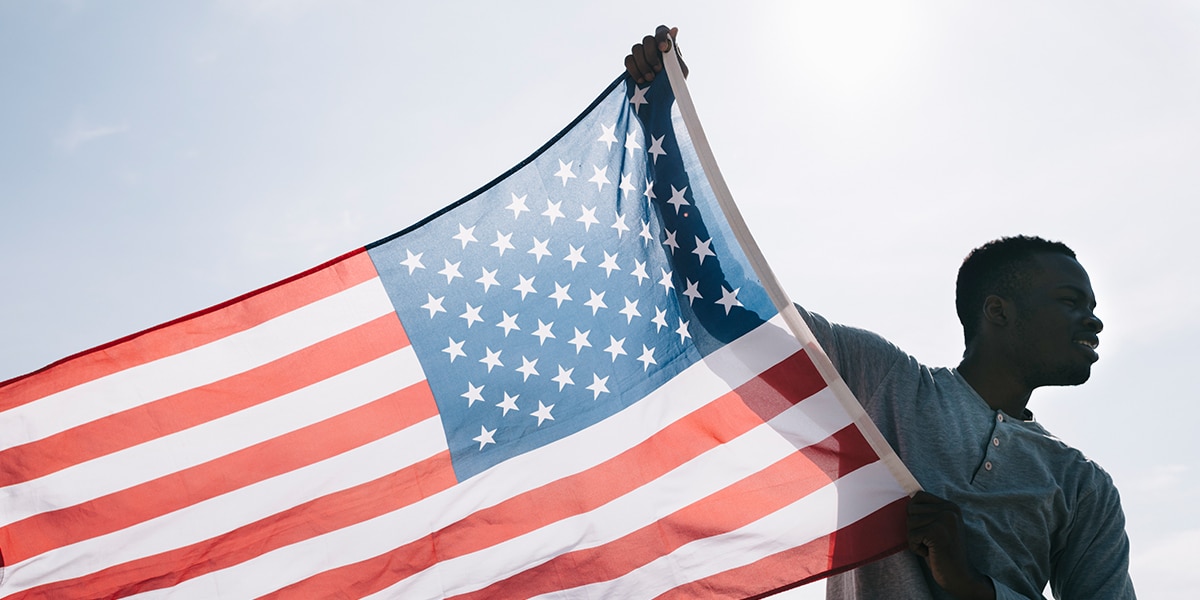On the 20th anniversary of 9/11, I am reflecting on how the world has changed since that day—and how the way that I experience the world has changed. When I watched the planes hit the Twin Towers from the TV in my freshman dorm room, I understood very little of US relations with the Middle East or of Christianity’s relations with Islam. But like all Americans, I immediately found these issues taking up newfound space in my mind.
As I watched my country cope with such grave trauma over the ensuing weeks and months, I felt simultaneously proud of the American spirit and newly fearful of Muslim people. Those were confusing times; many of us likely experienced prejudices and fears that we are not proud to admit.
Twenty years later, I understand just how painfully common it has been throughout history for one religion to do harm to another—Christianity included. How do we overcome fear and hatred of those who are different? Scripture tells us that perfect love drives out fear. There is not much action that most of us can take on the world stage, but we do have control over how we live our personal lives. In our own spheres, are we choosing to build bridges or walls? Are we being peacemakers in the spirit of St. Francis, who risked his life to befriend the sultan of Egypt, Malik al-Kamil, during the Crusades? Or are we spreading further fear and division by refusing to focus on our common humanity?
Mystery of God
Since 9/11, I have attempted to educate myself on religions that differ from my own to combat the negative stereotypes and fears that arose from that tragedy. I’ve done this by seeking to learn about other faiths from people who sincerely practice them. The truth is that God is not exclusive: No single tradition or culture can communicate the entire mystery of God to the human spirit.
We Christians have an unfortunate tendency to assume we don’t need the perspective of anyone else, but that’s not true. Many of our beloved spiritual writers and thinkers formed their ideas through dialoguing with other religions or through secular philosophy.

I’ve heard it said that trying to understand God is like feeling an elephant while blindfolded. One person will describe a tail, another a trunk, another a leg—and all the descriptions are true! But they only accurately reflect the elephant when they are put together. When we take each other’s experiences of God into account, we are left with a picture of the divine that is truer to the mystery of the whole.
We need each other’s experience and wisdom. We gain so much by listening—and we only miss out when we write one another off as ignorant or heretical. All people are made in the image of God, and so all the ways we seek a relationship with God are beautiful and sacred. When interfaith listening is done with an open mind and genuine desire for spiritual growth, it can be a deeply enriching practice in the Christian life.
Fruits of the Holy Spirit
When we seek to know and understand those of other faiths, it becomes more natural to pray for them. Praying for peaceful relations between differing religions has enormous consequences in people’s lives. Christians have a responsibility to pray for religious leaders around the world—to dialogue and relate with one another. Our prayers for world peace must begin with prayers for peace between religions.
Additionally, our personal prayer life can benefit from interfaith experiences because they can unlock our spiritual imaginations. We all know the feeling of a dry soul; sometimes hearing a new vernacular and encountering different approaches to prayer can serve as a glass of water in the desert.
When our imagination grows stale and our relationship with God feels at a standstill, the curiosity piqued by new ways of seeing the divine can offer us new tools for the journey. Prayer might just become wondrous again.
And in making room in our hearts for different ways that others reach for God, we are likely to notice the Holy Spirit’s expansion of our ability to keep the commandment to love our neighbor as ourselves. As we honor the spiritual expression of others, we often find more mercy in our hearts. Instead of labeling others “wrong,” we find the fruit of the Holy Spirit at work in our world views and relationships. This, too, is building our prayer life. In fact, could anything be more of a testament to growth in prayer than experiencing increased love for others?
Harmony through Dialogue
Dear God,
I know you reveal yourself
to all people. Help me
honor my fellow humans
on their faith journeys,
knowing that doing so
deepens my own spirituality.
May the religious leaders
of the world dialogue
with one another in a spirit
of love and unity.
Amen.







